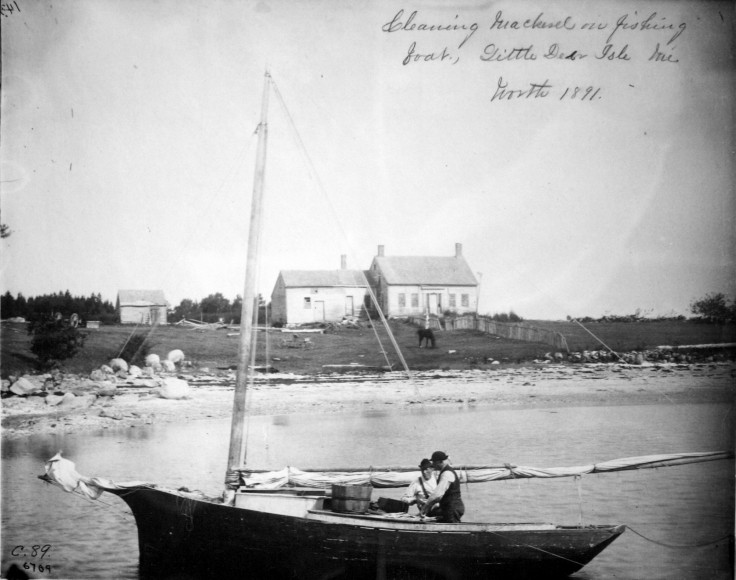Historic volcanic eruption devastated fisheries on the other side of the world
Mount Tambora eruption of 1815 was the largest volcanic eruption in historical records.
The enormous eruption of Mount Tambora – a stratovolcano in Indonesia – in 1815 had a catastrophic impact on fisheries in the Gulf of Maine in the US, new research shows.
Historians and climate scientists have now shown the effects of this eruption – the largest recorded in history – on a coastal ecosystem for the first time, publishing the findings in a paper published in the journal Science Advances.
The 1815 eruption released about 100 cubic kilometres of ash into the atmosphere, with effects on climate and wildlife across the world. It was the largest volcanic eruption in historical records, and lowered global temperatures by an average 1.5C.
In 1816 – which became known as 'the year without a summer' due to the extreme climate event – the staple fish of the Gulf of Maine failed. Alewives are sensitive to temperature and the unusual variations disrupted their spawning.
"During this climate crisis, people couldn't catch enough alewives to meet their needs, so they quickly turned to mackerel, the next abundant species to arrive along the coast," said study author Karen Alexander of the University of Massachusetts Amherst, in a statement.
"Pursuing mackerel and rapidly distributing it to communities with no other sources of food fundamentally altered the infrastructure of coastal fisheries."
The study authors say that this can act as a model for how humans may adapt to climate change in the future. The combination of crop failure, recovery from war in 1812, and the collapse of fisheries could well echo future combinations of pressures on resources due to climate change.
Alewife populations took 25 years to recover, but human responses to the crisis were much faster, shifting to fishing mackerel in a matter of months.
Michelle Staudinger, an ecologist at the Northeast Climate Science Center at the University of Massachusetts, Amherst, said: "Alewives and other fish that inhabit both rivers and oceans are highly vulnerable to climate change. The lessons learned from this study will help us better anticipate, prepare and cope for additional future impacts on their populations as well as the human communities that depend on them."

© Copyright IBTimes 2025. All rights reserved.






















